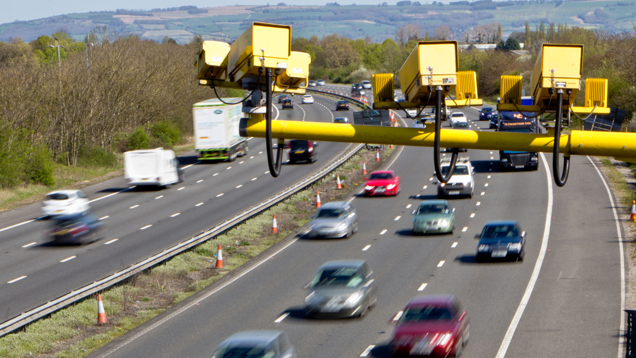Lights, camera, ticket
 CREDIT: NIGELPARKE / THINKSTOCK
CREDIT: NIGELPARKE / THINKSTOCKThe mayor of Toronto is trying to get permission to install average speed cameras that would enable law enforcement to ticket drivers without being there in person.
The scene opens with a hapless young adult watching television. The cable cuts out, the lights turn off and a cursory check confirms the phone is dead too. That's right, it's the plot of every pre-cellphone horror movie ever. Just as air travel made the plot of every epic voyage film seem trivial, technology in general changes the way we experience the world around us.
The law is constantly fighting to keep up with technology. This past election marked the first time that election results on the East Coast could be reported on the West Coast before their polls closed. Before the Internet existed, it would have been more difficult for the average person to know how the East Coast had voted.
Elections Canada worried that people might vote differently if they saw that their party of choice was in trouble. With the proliferation of social media and cellular communication, those laws became nonsensical and were rightly removed.
The mayor of Toronto is appealing to the premier for permission to install cameras that would enable law enforcement to ticket drivers without being there in person. The idea is as obvious as it is unpopular. The 407 has cameras at every on and off-ramp to allow the owners to send a bill directly to the homes of users. A logical extension of that technology could calculate the driver's average speed and ticket them for an estimate of how fast they had gone. If a driver travelled a distance of 50 kilometres on the highway and it took less than half an hour, it stands to reason that they must have been speeding and could be charged accordingly.
This is the kind of legislation that could, and should, have been enacted almost a decade ago. The results would be two-fold: an enormous increase in revenues from traffic fines and a drastic improvement in driving habits. Both of these outcomes are highly desirable from a government perspective, so what is standing in the way? We are. Everyone breaks the law when they're behind the wheel. Whether it's going 10 over the limit, not signalling or not coming to a full stop at four-ways, everyone is guilty of the occasional traffic violation.
It's unclear whether the issue will move forward, but Premier Kathleen Wynne has insinuated that she wouldn't stand in the way. Regardless of how Mayor John Tory justifies the plan, it's about the money.
The issue gives rise to the question of what precedent this could set. It's common knowledge that doing 20-over on the 401 is unlikely to result in a speeding ticket, so where would the camera give leeway?
The logical extreme of giving out more fines to generate revenue is a scenario in which enforcement increases in direct correlation to the financial needs of the region. Times are tough? No problem, start sending fines to anyone doing five over. The odds are low that such a bleak outcome would actually result, but it seems distasteful for laws to only be enforced when the government is broke.
Editorial opinions or comments expressed in this online edition of Interrobang newspaper reflect the views of the writer and are not those of the Interrobang or the Fanshawe Student Union. The Interrobang is published weekly by the Fanshawe Student Union at 1001 Fanshawe College Blvd., P.O. Box 7005, London, Ontario, N5Y 5R6 and distributed through the Fanshawe College community. Letters to the editor are welcome. All letters are subject to editing and should be emailed. All letters must be accompanied by contact information. Letters can also be submitted online by clicking here.














